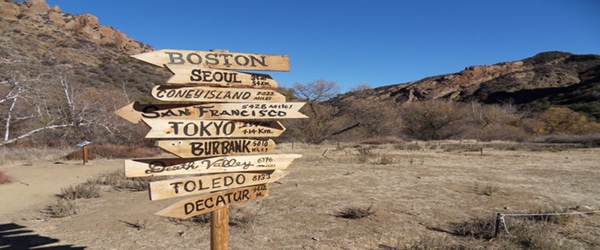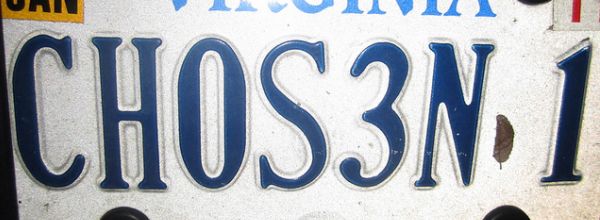In the frenzy of today’s scientific publication landscape, it is essential to take a proactive stand at your online visibility and reputation. There are online tools that can help you make yourself spotted and translate your hard work and high-quality science into actual impact. So if you are interested in improving your chance of landing collaborators, funding and positions – who isn’t? – read on.
Who is Going to Read – and Cite – Your Paper?
“Good science that is not published is inexistent science”, they say. In the modern landscape of scientific publication, we should be a little more specific: “good science that is not read is inexistent science”.
When publishing your work you need to ask yourself: “Who is going to read this?”, “How are they going to find it?”, and maybe most importantly “How can help them find it?”
The first and obviously best advice to be noticed is to produce excellent science. That must remain your number one priority. Working on the promotion of your science must never hurt its quality! But that is often not enough to generate the “impact” you want. How you define impact is up to you – it could be good Google search results, lots of citations, general press coverage, sparking a new school of thought, getting a new product on the market, what your impact is depends on your goals and your science.
Of course, you COULD just rely on the journal’s reputation and on its marketing strategy. Of course you COULD just trust your peers for doing clear-cut information mining and for not missing a single piece of your work. Of course, you COULD rely on your fellow conference attendees to take a note of your reference and download your publication once they are back in the labs. Of course you COULD rely on science journalists to dig into publication databases and to do insightful popularization work. You could…
But let’s be honest:
There are over a million publications added to the scientific literature every year! And with so many new articles every year it would be advisable not to leave your impact up to chance and other people. So enough of what you COULD do, here is what you SHOULD do.
How Articles are Found
Google searches now represent the standard method for discovering information. This is valid for scientific content too. In today’s connected world, lack of an online presence can markedly limit a researcher’s visibility. Additionally, social media are increasingly used as a source of information and as a dissemination platform for science.
This is particularly true for Twitter which allows communicating research to a broad audience of other researchers, decision makers, journalists and the general public. Being discussed on social media was demonstrated to amplify the scientific and social impact of publications. If you are proud of your work, don’t let it drown in an ocean of similar scientific publications.
How to Help Your Article be Found
Several easy actions can be taken. One obvious thing to do is to share the link to your paper: by email (to colleagues and peers) and of course on your personal social media accounts. Your institution may have social media accounts too, so you might ask them to share.
The second step is to drop your paper on your institutional repository and – why not – on “academic social media” platforms like ResearchGate and Academia. But do please beware of legal restrictions. The systematic release of the full text in total open access on these commercial websites is not always legally compliant. You can find here an interesting piece on the pros and cons of such online services.
But much more can be done than just advertising the link to your full PDF! Scientific articles are often difficult to fathom for the public, due to the technical jargon. Even for people in the field, grabbing the essence of your work in a minute can be highly valued over spending more time deciphering your full publication.
Why not prepare some alternative content to explain your work and attract online attention? More accessible, more personal, straighter to the point, more visual, more informal, more sharable,…
In such blogging activity, you are not restricted to the canvas of scientific publications. You may therefore use engaging features like eye-catching illustrations, informal story-telling, simplified summaries, or even more advanced communication methods like face-camera video presentations, animated infographics, interactive polls, etc. You can try and start your own blog. Though much more time-consuming, this can be highly rewarding. The bottleneck however is to build a significant audience who will effectively read your posts and follow the signs to your publication. You might need some help there.
Best Online Outreach Platforms
Recently, several online services have been created to help researchers make their work more visible online. Here we’ll cover three of these (Kudos, External Diffusion and Atlas of Science), which are all free of charge for authors and have as a mantra to increase the reach of scientific publications. Their strategy and workflow, however, are dissimilar so you should ponder which one to choose as a function of your personal goals. We hereunder cover their specificities, we analyze their pros and cons, and we evoke their business model.
Kudos
Kudos was launched in 2013 by a consortium of scholarly publishers and is cooperating a.o. with Thompson Reuters, CrossRef and Altmetric. It is also fully integrated with ORCID, so that each scientist can be identified unambiguously and can easily claim authorship for its publications. Today, the platform claims 70,000 users.
Upon registration, their service provides a platform for describing your papers in plain language and for sharing information via social media. Kudos offers a fully integrated option to link the users profile with its personal social media accounts (Facebook, Twitter and LinkedIn). The social media shares, however, are strictly managed by the user and Kudos is not actively participating in the outreach (except occasional retweets through their Twitter account). As a user you are in the driving seat to make your page discovered, which may still be limiting if your own social media audience is limited.
In terms of content, Kudos proposes a minimalist version of blogging that can be enhanced with additional content. All you need to do to get the ball rolling is to use their online platform to provide (i) an alternative short title for your paper, (ii) a few words on the context, (iii) a comment justifying the importance of the work and (iv) a personal insight on the work. So you can jump in after a minimal effort of writing. You are however encouraged to enrich your description by providing links (URLs) to additional resources: image, preprints, video, other important articles, etc.). The strength of Kudos is undoubtedly the tools they offer to measure the impact of these outreach activities. Statistics on page views, clicks, downloads, Altmetric score, etc. are visible at any time and updated virtually instantaneously. The company claims that its service increases publication usage by 19%. Their business model is based on subscription fees for institutions who want to have access to their statistics.
External Diffusion
External Diffusion was launched in October 2015 by a small team of scientists and web experts. Their platform offers you the possibility to blog about your paper and to get visibility online and on social media.
In terms of content, the platform allows you to prepare various forms of additional contents, so as to build a tailor-made and multi-section blog page with illustrations, videos, infographics, links to other relevant resources, author bio, and informal sections like the “story behind the paper”. In fact the service is à la carte since you can choose – starting from a proposed template – what to include in your blog post. In this way, you can fine-tune the level of your post or even of subsections of your post, depending on your target audience.
Thanks to their scientific background and the personalized workflow (See Figure 1), External Diffusion also proposes some editing and technical help if needed, e.g. in the preparation of a video. The preparation of the contents for the blog post obviously requires a significant input from the author, but this may be rewarding in terms of impact.
Figure 1: External Diffusion workflow.
Apart from proposing these flexible and comprehensive blogging options, the strength of External Diffusion resides in the social media outreach. Their site is fully wired for social. By default, they propose a wide-ranging communication plan which includes time-optimized posts on all main social medias (Twitter, Facebook, LinkedIn, Google+) and curation websites (Scoopit!, StumbleUpon). If you prepare a video, it will be posted on YouTube and Dailymotion. Obviously, you can also take an active part in the publicizing. Back links to your personal or research group webpage as well as to your social media accounts are added on the page. Very active on Twitter, External Diffusion generates online attention (views, RT, mentions, etc.) thanks to focused outreach actions directed toward the influencers in the field of the paper they promote. In one word, their service is the way to go if your goal is to build – or strengthen – your personal online audience.
External Diffusion does not offer live tracking of the performance of the blog post, but a monthly report of the online activity around the post (clicks, YouTube views, page views, social media impressions, etc.) is provided to the author each month. External Diffusion is not sponsored or related to any publisher or institution; and doesn’t have a clear business model so far. This personalized service is accessible to all, without registration but upon request.
Atlas of Science
Atlas of Science is exactly as young as External Diffusion. Their focus is to publish layman’s abstracts of scientific publications. Their target audience is mainly the general press. Indeed, through media exposure you can attract the attention of peers, potential employers, financiers and other people who may benefit you. Atlas of Science encourages the authors to prepare an easily understandable summary of their work, avoiding jargon. Said summary must be short: under 600 words and maximum 2 figures. The team has a scientific background and they do the proofreading and editing of your abstract if you needed it. Atlas of Science may be the way to go if your objective is to communicate with a general audience and hope to get the attention of the public on a particularly important result of yours, with practical implication and potential impact on the society. However, access to their service is only granted upon invitation. Authors are selected by the editorial team, based on their own criteria, with the idea to keep Atlas of Science interesting for broad range of audience. The website also has social media accounts (Facebook and Twitter) where they place a post for each publication. The invited author is expected to take an active part in the outreach work on the social media.
With this information now in your hands, I’m sure you’ll find the right outreach path for your publications!








